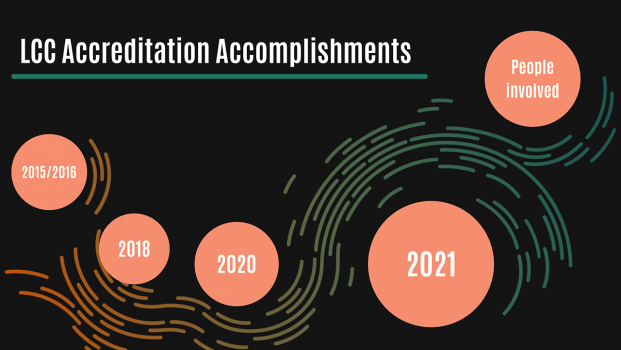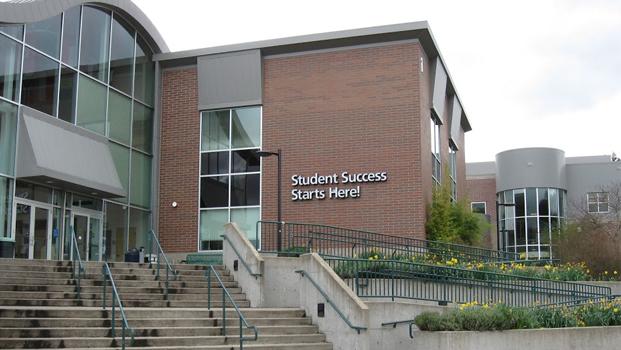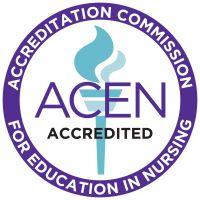Welcome to Lane's institutional accreditation web pages. This page provides news updates, links, several videos about accreditation, why Lane needs to be accredited, and a note about Lane’s accredited status as well as a list of program accreditations.
About Accreditation at Lane
Institutional Accreditation Reaffirmed
After a comprehensive evaluation of effectiveness, the Northwest Commission on Colleges and Universities (NWCCU) reaffirmed Lane’s institutional accreditation. Lane received six (6) commendations and two (2) recommendations. Read more detail in the NWCCU letter, February 18. In Fall of 2024, LCC submitted the Mid-cycle Report, and hosted NWCCU peer evaluators for the Mid-Cycle visit. In January 2025, NWCCU accepted the report concerning the Fall 2024 Mid-Cycle Review of Lane Community College.
Webinar Recording
Here's a link to the recorded webinar of the Town Hall, 4/15/2021. The webinar features a panel who discuss what is accreditation, why it's important and how to prepare for the upcoming site visit on Oct 25-27, 2021.
LCC Accreditation Accomplishments
Accreditation at Lane
About Lane's Accreditation Status
Lane Community College is accredited by the Northwest Commission on Colleges and Universities (NWCCU).
Accreditation of an institution of higher education by the Northwest Commission on Colleges and Universities indicates that it meets or exceeds criteria for the assessment of institutional quality evaluated through a peer-review process. An accredited college or university is one that has the necessary resources available to achieve its stated purposes through appropriate educational programs, is substantially doing so, and gives reasonable evidence that it will continue to do so in the foreseeable future. Institutional integrity is also addressed through accreditation.
Accreditation by the Northwest Commission on Colleges and Universities is not partial but applies to the institution as a whole. As such, it is not a guarantee of every course or program offered or the competence of individual graduates. Rather, it provides reasonable assurance about the quality of opportunities available to students who attend the institution.
Our Current Understanding
The Accreditation Communications and Engagement Team periodically surveys campus employees on accreditation awareness.
In May 2020, Provost Paul Jarrell invited Lane employees to participate in a survey to gauge awareness about the Northwest Commission on Colleges and Universities (NWCCU) accreditation process. Survey results show that about 47 percent of the respondents reported a lack of familiarity with the accreditation process, while a majority of them correctly identified aspects of our institutional effectiveness that will be reviewed as part of the accreditation process. The May 2020 survey results pointed to areas of opportunity for future communication to help our campus community understand the impact and purpose of accreditation.
During Fall 2019, the Accreditation Communication and Engagement Team invited Lane employees to participate in the same survey and those results helped the team better understand where to focus its outreach.
It’s the Accreditation Communication and Engagement Team’s goal to raise awareness about the process as we prepare for our 2021 NWCCU site visit. So, over the next year, expect to learn more than you ever wanted to know about accreditation and your role in continuous improvement at Lane!

How does institutional accreditation help Lane?
Institutional accreditation provides the stamp of approval necessary for a college to access funding from the federal government. With about 62% of Lane students relying on some form of federal financial aid, accreditation is essential to our financial viability. Beyond providing access to funds, the Northwest Commission on Colleges and Universities’ (NWCCU) accreditation standards place student success at the heart of the process and incentivize the College to strive toward continual improvement of our ability to equitably serve students, staff, faculty, administrators, and the community. Accreditation ensures that students:
- -receive a quality education
- -have access to federal student aid programs
- -receive transferable credits
- -receive appropriate licensure, certificates, and degrees appropriate to their field
- -have access to the programs and services that meet their individual needs as learners
To learn more about why accreditation matters, check out, "Why does accreditation matter to me."
Why It Matters To ...
Accreditation impacts all stakeholders of Lane Community College: students, faculty, staff, Board of Education, and the community. Accreditation matters!
- Students: Ensures access to financial aid and that credits easily transfer and are recognized by other higher education institutions, as well as employers.
- Faculty: Provides opportunities to contribute and ensure transparency within our institution.
- Board of Education: Creates an understanding of strengths and deficits and provides accountability.
- Staff: Reinforces a supportive workplace for staff and identify opportunities to improve procedures for solving workplace problems.
- Community: Ensures accountability for Lane's development of a highly-skilled and diverse workforce and as a responsible steward of its resources.
Accredited Programs
Below is a list of Lane’s programs that maintain specialized accreditation, certification or approval from professional organizations such as the Oregon State Board of Nursing. These processes help ensure we offer quality education and prepare students for a recognized profession. In some cases, for example, programmatic accreditation ensures that students meet professional licensure requirements by reviewing the quality of curriculum and program content.
Automotive Technology is certified by the National Automotive Technicians Education Foundation, a non-profit foundation within the National Institute for Automotive Service Excellence.
National Automotive Technicians Education Foundation
101 Blue Seal Drive, SE, Suite 101
Leesburg, VA 20175
703-669-6650
Aviation Maintenance is approved under Part 147 of the Federal Aviation Regulations of the Federal Aviation Administration.
Federal Aviation Administration
800 Independence Ave., SW
Washington, DC 20591
866-835-5322
Both Dental Assisting and Dental Hygiene are accredited by the American Dental Association's Commission on Dental Accreditation, a specialized accrediting board recognized by the U.S. Dept. of Education
Commission on Dental Accreditation
211 East Chicago Avenue
Chicago, Illinois 60611
800-232-6108
Diesel Technology is evaluated, accredited and certified through the Association of Equipment Distributors Foundation.
The Association of Equipment Distributors Foundation
650 E Algonquin Rd., Ste 305
Schaumburg, IL 60173
630-574-0650
Private Pilot, Instrument and Commercial Flight Training are approved under Part 141 of the Federal Aviation Regulations of the Federal Aviation Administration.
Federal Aviation Administration
800 Independence Ave., SW
Washington, DC 20591
866-835-5322
Health Information Management: The Commission on Accreditation for Health Informatics and Information Management Education (CAHIIM) in cooperation with the Amecrican Health Information Management Association (AHIMA)
233 N. Michigan Avenue, Suite 2150
Chicago, Illinois 60601-5800
312-233-1100
Medical Assistant is accredited by the Commission on Accreditation of Allied Health Education Programs, a specialized accrediting board recognized by the Council for Higher Education Accreditation, on recommendation of the Medical Assisting Education Review Board of the American Association of Medical Assistants Endowment.
Commission on Accreditation of Allied Health Education Programs
9355 - 113th St. N, #7709
Seminole, FL 33775
727-210-2350
As of July 3, 2023, the Practical Nursing and Registered Nursing programs at Lane Community College in Eugene, Oregon are accredited by the Accreditation Commission for Education in Nursing.
Accreditation Commission for Education in Nursing (ACEN)
3390 Peachtree Road NE, Suite 1400 Atlanta, GA 30326
(404) 975-5000
Paramedicine is nationally accredited by the Commission on Accreditation of Allied Health Education Programs. The Paramedic and EMT Programs are accredited and approved by the State of Oregon Department of Education, Office of Community Colleges and Workforce Development, Higher Education Coordinating Commission.
Commission on Accreditation of Allied Health Education Programs
9355 - 113th St. N, #7709
Seminole, FL 33775
727-210-2350
State of Oregon Higher Education Coordinating Commission
3225 25th Street SE
Salem, OR 97302
503-378-5690
The Physical Therapist Assistant program is accredited by the Commission on Accreditation in Physical Therapy Education.
Commission on Accreditation in Physical Therapy Education
3030 Potomac Avenue, Suite 100
Alexandria, VA 22305
800-999-278
Contact Us
Inquiries regarding Lane's accreditation status by the Northwest Commission on Colleges and Universities may be directed to our Accreditation Liaison Officer, Shelley Tinkham, tinkhams@lanecc.edu
Individuals may also contact:
Northwest Commission on Colleges and Universities
8060 165th Avenue N.E., Suite 100
Redmond, WA 98052
(425) 558‐4224
www.nwccu.org
4000 E. 30th Avenue
Eugene, OR 97405



